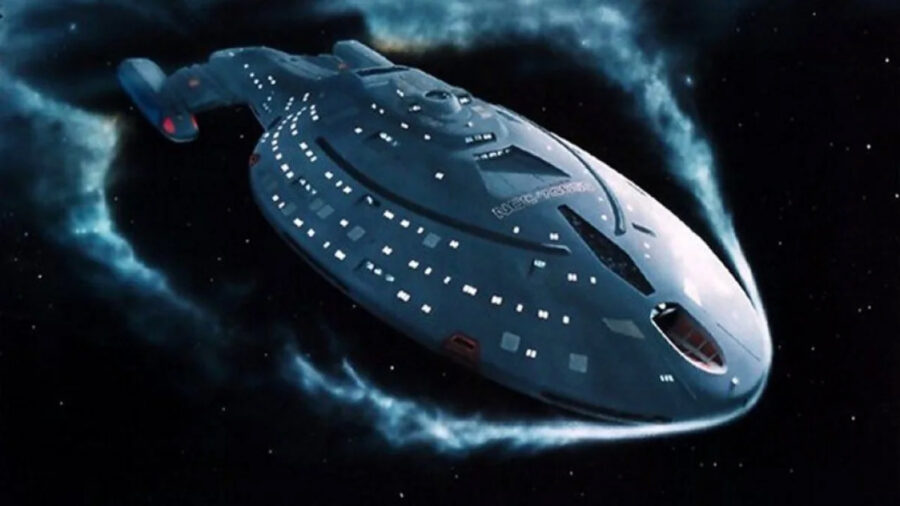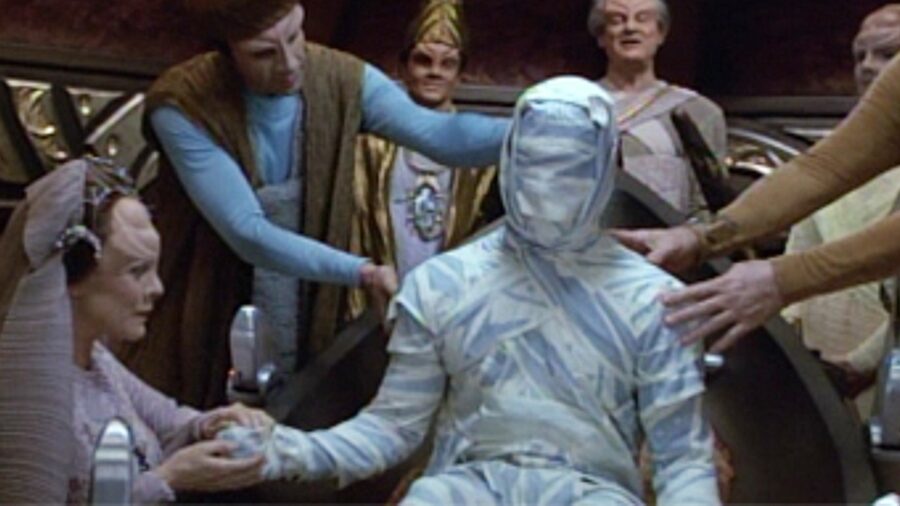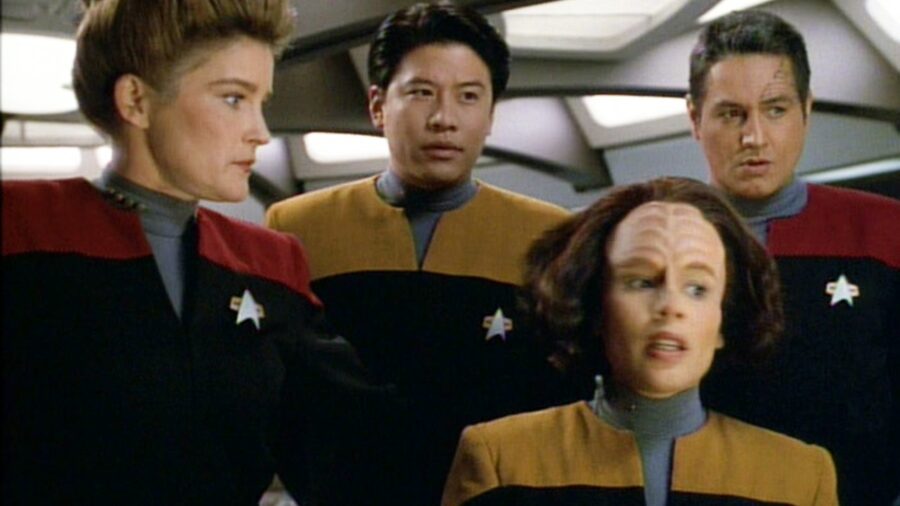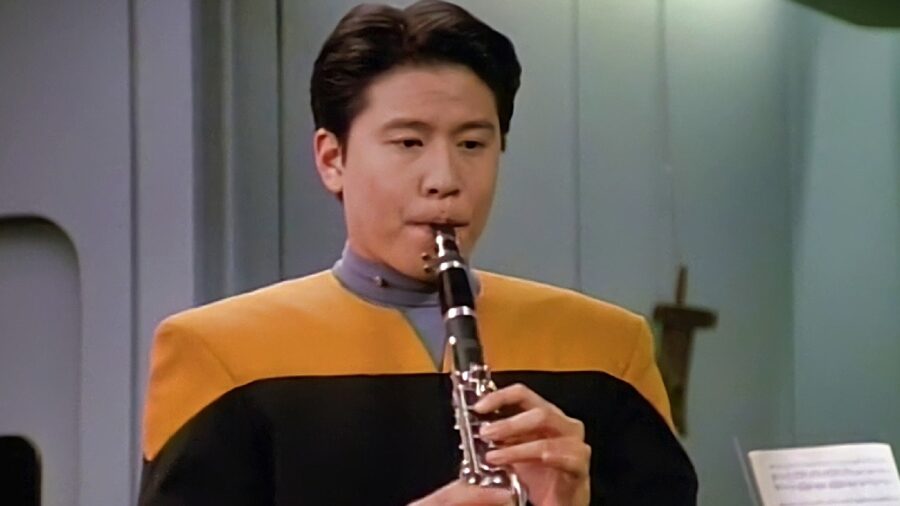Star Trek Voyager Episode Provides Behind-The-Scenes Clash Over Spirit Of The Franchise

One of the unfortunate realities of modern-day Star Trek is how divided the fandom is. While there are certainly some bad operators on either side, there seems to be a genuine schism between equally passionate fans about what the franchise should focus on and what kinds of stories it can tell. That’s why we were surprised to discover that behind the scenes of the Star Trek: Voyager episode “Emanations,” two high-ranking producers were similarly clashing over what they saw as the spirit of the franchise.
The Divide Over Emanations

Before we can dive into this juicy Star Trek: Voyager drama, it’s important to recap what “Emanations” was all about. This is an episode where Harry Kim seemingly dies, waking up in an alien environment where residents think he is a visitor from the afterlife. This alien culture encourages euthanasia, and Kim eventually lets these aliens kill him as part of a long-shot gamble to return back to Voyager.
Explores Deep Concepts

This Star Trek: Voyager episode was written by Brannon Braga, a young hotshot writer and producer who had made his name on The Next Generation. Among the other writers, Braga had a reputation for telling very philosophical tales and being a bit morbid in his interests. As such, he was quite happy to write “Emanations,” an episode that explored heady concepts like life, death, the afterlife, and euthanasia.
The Clash Of Writer And Showrunner

Out of the somewhat tumultuous first season of Star Trek: Voyager, “Emanations” was arguably one of the better episodes, and its conceit–that our own world might be the afterlife to others–is as wild as anything the franchise has ever given us. But Braga and showrunner Michael Piller had their own differing ideas of what Star Trek should be, and that led to major arguments surrounding this episode.
According to Star Trek: Voyager showrunner Michael Piller, “I always felt that [“Emanations”] was more philosophical than dramatic.” He felt that while the episode was “philosophically fascinating,” it ultimately had “too much conversation about philosophy” and not enough of “a strong enough character arc for my tastes.” Braga strongly disagreed with this, and if he had been running the show, the episode would have been even more “brooding and philosophical.”
Helped Forge A Strong Partnership

These kinds of behind-the-scenes disagreements weren’t uncommon on Star Trek: Voyager, nor were they long-lasting, as Braga and Piller worked together very productively long after “Emanations” aired. What is interesting about their disagreement, though, is that it basically predicted the exact argument that fans are having now about the future of Star Trek.
Some fans are more like Braga and want adventures that focus mostly on sci-fi concepts and philosophical explorations; others are more like Piller and want more action as well as more character arcs.
The Debate Still Rages

In the era of NuTrek, it’s interesting to note that Discovery and Strange New Worlds seem like each reflects the different sides of the franchise each of these producers wanted. He sadly passed away before he could see it, but Discovery seems more like Piller’s kind of show, with plenty of conflict and character development.
Strange New Worlds still has some fun action in it, but its philosophical exploration of some crazy ideas (including cosmic phenomena that can do everything from making people sing to forcing them into a fairy tale) seems more like what Braga wanted.
Star Trek Is Struggling To Find Its Voice

Obviously, fan conflict over what Star Trek should be like isn’t going to go away anytime soon, and Paramount often seems like they are just throwing ideas against the wall and seeing what sticks. However, it’s weirdly edifying that a decades-old Star Trek: Voyager episode predicted these very debates. “Emanations” had Kim willing to die to return to life; as for us, we might just follow in his footsteps if it means not having to hear one more debate about Discovery.











